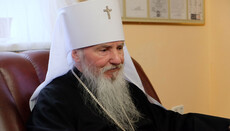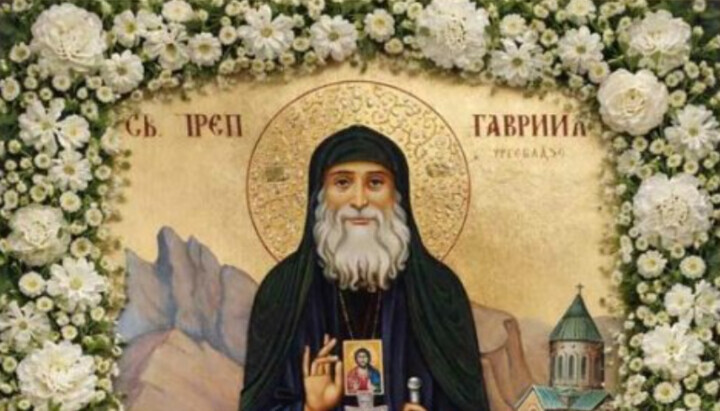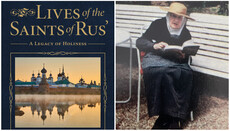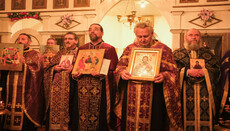Pope Leo Urges Catholic Politicians to Uphold Sanctity of Life
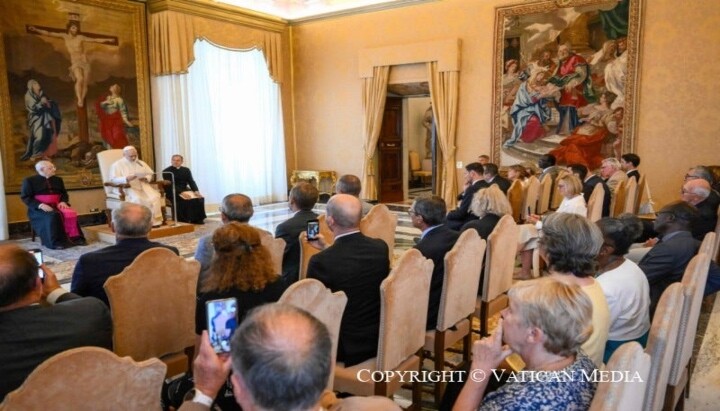
Pontiff rejects “split identity” in public life, calls for alignment of faith and policy.
VATICAN CITY — Pope Leo XIV has issued a strong appeal to Catholic politicians worldwide, urging them to bring their legislative actions into harmony with the Catholic Church’s teachings on the sanctity of life.
This aligns with another recent message, where the Pope emphasized that one cannot be “personally pro-life” while supporting abortion laws: “There is no division within the personality of a public figure: there is not on one side the politician, and on the other the Christian.”
In his address, Pope Leo highlighted critical areas where lawmakers must reflect the Christian moral vision. The call echoes his consistent pro-life stance, rooted in his earlier work as Cardinal Robert Francis Prevost, when he condemned abortion and emphasized compassion for the unborn, the elderly, and the disabled.
The pontiff’s latest message comes amid heightened global debates on abortion and end-of-life issues, with pro-life advocates viewing his warning against “voices of death” as a direct challenge to policies undermining the dignity of human life.
The pope's full address, translated from French to English by Diane Montagna, is below.
In the name of the Father, and of the Son, and of the Holy Spirit. Peace be with you!
I am sure many of you speak English, no? I shall attempt to speak French, relying on your benevolence!
I extend my most cordial greetings to His Excellency, Monsignor Dominique Blanchet, and I offer my welcome to all of you, elected officials and civic leaders of the Diocese of Créteil, on pilgrimage to Rome.
I am happy to receive you in this act of faith: you will return to your daily commitments strengthened in hope, more firmly established to labor for the building of a world more just, more humane, more fraternal, which can only be a world ever more imbued with the Gospel. In the face of the various forms of deviation that our Western societies are experiencing, we Christians can do no better than to turn to Christ and to ask His help in the exercise of our responsibilities.
This is why your undertaking, more than a mere personal enrichment, is of great importance and great usefulness for the men and women whom you serve. And it is all the more meritorious since it is not easy in France, for an elected official, because of a laïcité sometimes misunderstood, to act and to decide in coherence with his faith in the exercise of public responsibilities.
The salvation that Jesus won through His death and resurrection encompasses every dimension of human life—such as culture, economy and labor, family and marriage, the respect for human dignity and life, health, as well as communication, education, and politics. Christianity cannot be reduced to a simple private devotion, for it entails a way of life in society imbued with the love of God and of neighbor, who in Christ is no longer an enemy but a brother.
Your region, the place of your commitments, is confronted with great social challenges such as violence in certain neighborhoods, insecurity, poverty, drug networks, unemployment, the disappearance of social bonds… To confront them, the Christian public servant is strengthened by the virtue of Charity which has dwelt within him since his baptism. This is a gift of God, a “a force capable of inspiring new ways of approaching the problems of today’s world, of profoundly renewing structures, social organizations, legal systems from within. In this perspective love takes on the characteristic style of social and political charity: “Social charity makes us love the common good”[457], it makes us effectively seek the good of all people” (Compendium of the Social Doctrine of the Church, n. 207). This is why the Christian public servant is better prepared to face the challenges of the present world, insofar, of course, as he lives and bears witness to his living faith, to his personal relationship with Christ who enlightens him and gives him this strength. Jesus declared forcefully: “Apart from me you can do nothing!” (Jn 15:5). It is therefore no cause for surprise that the promotion of “values,” however evangelical they may be, but “emptied” of Christ who is their author, should prove powerless to change the world.
Now then, Monsignor Blanchet asked me to give you some advice. The first—and the only—that I shall give you is this: unite yourselves ever more closely to Jesus, live from Him, and bear witness to Him. There is no division within the personality of a public figure: there is not on one side the politician, and on the other the Christian. Rather, there is the politician who, under the gaze of God and of his conscience, lives out his commitments and his responsibilities in a Christian manner!
You are therefore called to strengthen yourselves in faith, to deepen your knowledge of doctrine—particularly of social doctrine—which Jesus taught to the world, and to put it into practice in the exercise of your responsibilities and in the drafting of laws. Its foundations are fundamentally in harmony with human nature, with the natural law that all can recognize, even non-Christians, even non-believers. You must not therefore fear to propose it and to defend it with conviction: it is a doctrine of salvation that seeks the good of every human being, the building of societies that are peaceful, harmonious, prosperous, and reconciled.
I am well aware that the openly Christian commitment of a public official is not easy, especially in certain Western societies where Christ and His Church are marginalized, often ignored, sometimes ridiculed. Nor am I unaware of the pressures, the party directives, the “ideological colonization”—to borrow an expression of Pope Francis—to which politicians are subjected. They need courage: the courage at times to say, “No, I cannot!” when the truth is at stake. Once again, only union with Jesus—Jesus crucified!—will give you the courage to suffer for His name. He said to His disciples: “In the world you will have tribulation, but take courage! I have overcome the world” (Jn 16:33).
Dear friends, I thank you for your visit and I assure you of my most sincere encouragement in the continuation of your service to your fellow citizens. Keep alive the hope of a better world; keep the certainty that, united with Christ, your efforts will bear fruit and obtain their reward. I entrust you, as well as your country, to the protection of Our Lady of the Assumption, and I wholeheartedly impart to you the Apostolic Blessing.
Previously, UOJ reported that the Vatican has upheld Bishop Michael Gielen’s decision to expel the Sons of the Most Holy Redeemer (FSSR), a traditional Latin Mass community, from the Diocese of Christchurch, New Zealand.
